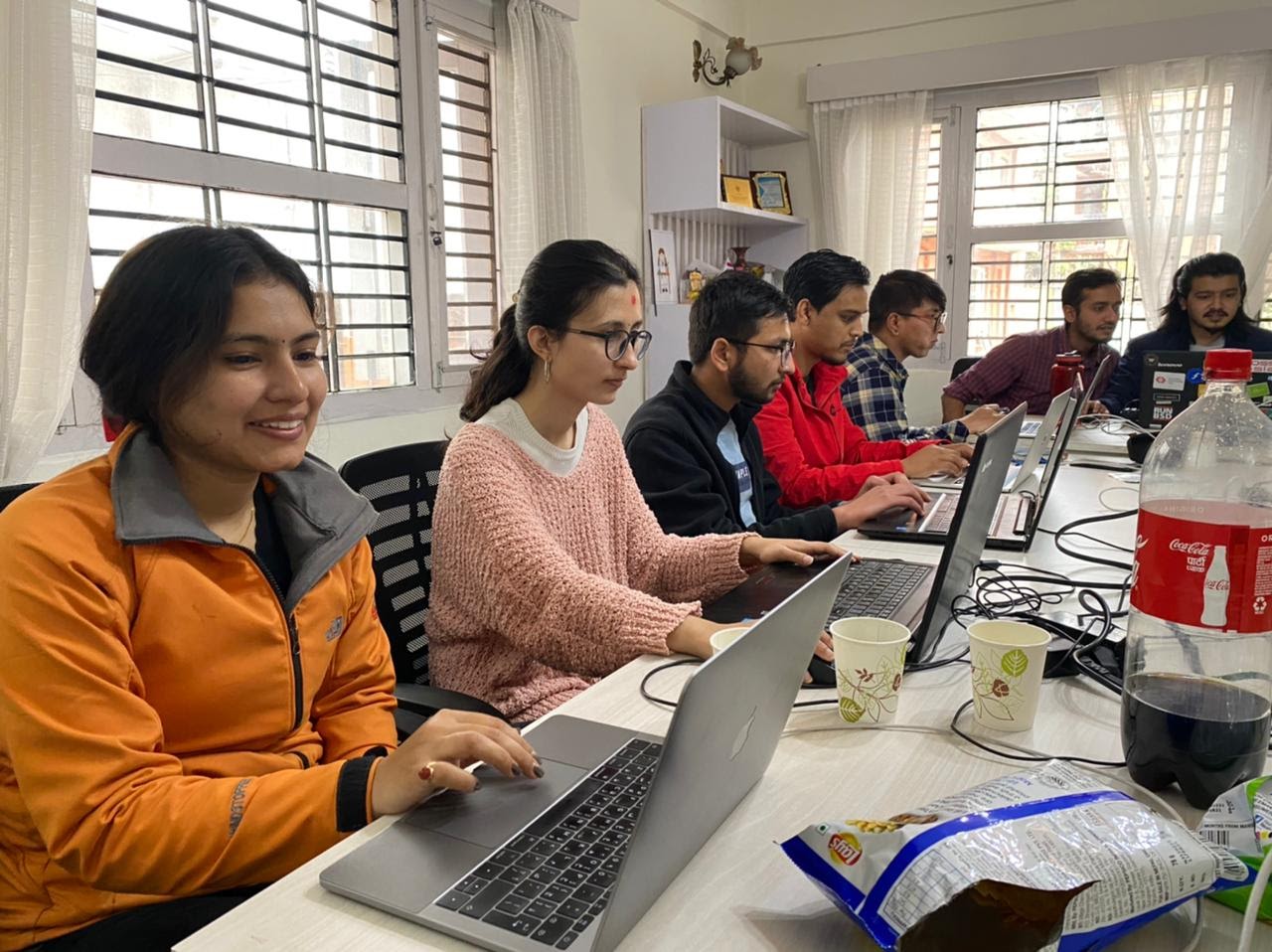DataDive Kathmandu - Relatório do Evento
- Dia
- Saturday 13 March 2021
- Horário
- 11:00 (NPT)
- Local
- Kathmandu, Nepal, Nepal (Asia & The Pacific)
- Organizadores
- Open Knowledge Nepal
No sábado, 6 de Março de 2021, o décimo primeiro Dia dos Dados Abertos foi realizado por pessoas de todo o mundo através da organização de centenas de eventos para celebrar, promover e disseminar o uso de dados abertos. Graças aos generosos suportes, a Open Knowledge Foundation foi capaz de apoiar a realização de mais de 60 destes eventos através nosso esquema de minibolsas.
Este evento recebeu uma minibolsa da Open Knowledge Foundation graças ao suporte de Microsoft.

Como seu evento celebrou os Dados Abertos?
12 people attended the DataDive and everyone aimed to make the best utilisation of the available data to generate more user case stories and encourage others to publish the data. Nikesh Balami, CEO/co-founder of Open Knowledge Nepal, started the event by welcoming all the individuals and oriented on the tentative goal of the gathering. He highlighted the core values of coming together as a community and contributing to the common goal. The gathering was more of an informal collaborative forum, and it was rightly highlighted by Arogya Koirala from Kathmandu Living Labs. He opined the need for developing a peer learning and collaborative open community rather than a top-down approach of coaching the participants. It was interesting to note, how all participants passively agreed to the notion of more informal, open peer-based learning in community settings.
After the introduction session, the event free flowed. Everyone worked on what best fits the goal of the event, as per their expertise and through collaboration. Some of the works included:
- Solving bugs in the ‘Open Data Nepal’ portal.
- Developing a data scraper for scraping the data such that it would be convenient to convert it in open format.
- Brainstorming for the designing logo of Air Quality Nepal bot (currently available on Twitter).
- Refining data from the Kalimati Fruits and Vegetable Market Development Board.
- Researching on government portals and other relevant organizations, discovering useful climate and environment data, making it open and uploading it in the Open Data Nepal’s portal.
Here is the event blog post: http://oknp.org/2021/03/14/rebuilding-community-to-work-on-climate-and-environment-data/
Last Saturday, we organized #DataDive Kathmandu & invited a few teams of volunteer data scientists, developers & designers to explore the key climate and environment data sources of Nepal.
— Open Knowledge Nepal (@openknowledgenp) March 15, 2021
Thank you all for joining 🙏
Read the details here: https://t.co/yQeFC1BwpS #OpenDataDay pic.twitter.com/WmpzoNLchD
Lições aprendidas no evento:
Despite being in the high-risk zone due to climate change, we realised that the climate and environment datasets related to Nepal are very difficult to access. Most of the teams struggle to find the datasets and in many cases, the available datasets are incomplete and are in unstructured formats so, lots of time was consumed in data cleaning.
Participants got to learn new things from each other and some of them successfully published the scrapped and datasets on the portal. Some of the participants showed great enthusiasm and have committed to continue the work of opening up climate and environment data of Nepal.
Porque você ama o Dia dos Dados Abertos?
Because it gives us an opportunity to reflect and celebrate.
Você ou seu time produziu algum recurso (conjunto de dados/ferramenta/mapa/código/etc) durante sua celebração do Dia dos Dados Abertos?
https://opendatanepal.com/dataset?category=Environment+%26+Climate
